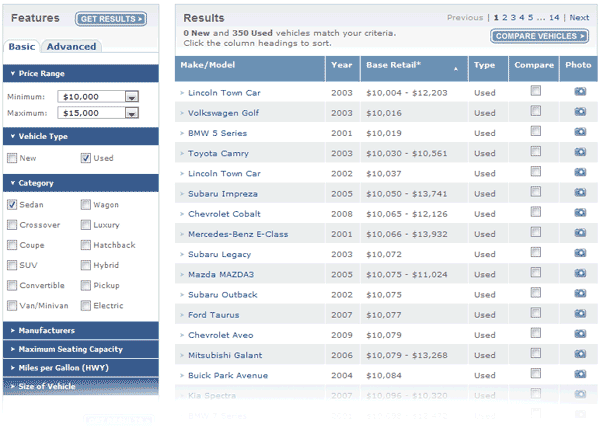Urban Insights
Exploring the pulse of modern cities.
Don't Get Carried Away: The Sneaky Tricks to a Smart Car Purchase
Discover savvy secrets to avoid pitfalls and score the best deal on your next car purchase—don’t get carried away!
7 Common Car Buying Myths Debunked: What You Need to Know
When it comes to purchasing a vehicle, misinformation can lead to poor decisions. One of the most prevalent myths is that you must buy a car at the end of the month to get the best deals. While it's true that dealers might be more eager to hit monthly sales targets, timing is not the only factor to consider. According to Edmunds, shopping in the off-peak seasons, such as winter months, often leads to better deals and less pressure from sales staff.
Another common misconception is that the sticker price is non-negotiable. In reality, most dealerships expect some haggling. Being informed about the vehicle's market value, which you can find on sites like Kelley Blue Book, empowers you to negotiate effectively. Always remember, many factors, such as incentives or financing options, can alter the final deal, making it pivotal to be well-prepared before stepping foot in a dealership.

How to Spot a Great Deal: Essential Tips for Smart Car Buyers
Finding a great deal on a car doesn’t have to be a daunting task. One of the first steps is to research the market value of the vehicle you're interested in. Websites like Kelley Blue Book and Edmunds provide valuable insights on pricing trends. Additionally, consider visiting multiple dealerships and online marketplaces to compare prices. Make a list of any variations you find; this information can be a powerful negotiation tool. Don’t forget to check the vehicle’s history using services like Carfax or AutoCheck to ensure you’re making a smart investment.
Once you've narrowed down your options, it’s crucial to evaluate the car's condition before finalizing your purchase. Look for signs of wear and tear both inside and out; things like scratches, dents, and worn tires can indicate larger issues. If possible, arrange for a professional mechanic to conduct a pre-purchase inspection—this can save you from unexpected expenses down the road. Additionally, consider whether the vehicle's maintenance history is readily available; a well-documented service record often suggests a more trustworthy deal. Finally, don't rush the process; patience can lead to a significantly better deal.
Are You Overpaying? Key Questions to Ask Before Signing That Car Deal
Purchasing a car can be an overwhelming experience, especially when it comes to negotiating the price. Before you sign that car deal, it's essential to ask yourself some key questions to ensure you are not overpaying. First, consider the market value of the vehicle you're interested in. Utilize resources like Kelley Blue Book or Edmunds to research prices for similar models in your area. By doing this, you can take an informed stance when negotiating, avoiding the trap of overestimating the car's worth.
Another crucial question to consider is the financing options available to you. Many buyers unknowingly overlook the total cost of loans, which can lead to significant overpayment in the long run. Ask yourself: What are the interest rates? Can I get better terms through my bank instead of the dealership? Make sure to read the fine print of any financing agreement and compare deals from different lenders. Websites like Bankrate can help you find competitive rates. Always remember that the lowest monthly payment doesn’t always mean the best deal overall.